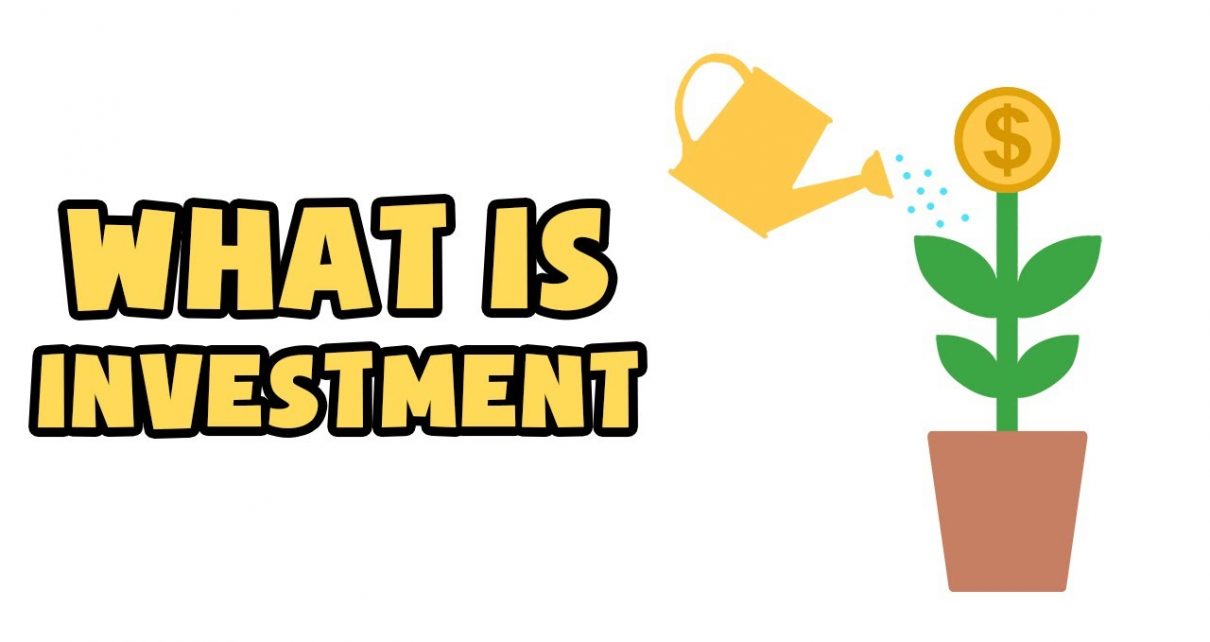The fact that many people play the game of investing without understanding the rules that govern it is one of the reasons why they fail, sometimes very badly. It goes without saying that you can’t win a game if you break the rules. However, in order to avoid breaking the rules, you must first be aware of them. Playing the game without understanding what investing is all about is another reason why people fail. To this end exposing the significance of the term, ‘investment is significant’. What exactly are investments? An asset that generates income is an investment. You need to pay close attention to every word in the definition because they are crucial to comprehending the true meaning of investment.
From the definition above, there are two critical highlights of a venture. Before a possession, belonging, or property of yours can be considered an investment, it must meet both requirements. Otherwise, it will not be an investment at all. An investment’s first quality is that it is valuable—something that is very useful or significant. As a result, nothing you own that isn’t valuable can’t or won’t be considered an investment. A useless, insignificant, or worthless possession, belonging, or property is not considered an investment under this standard. The value of any investment can be measured in dollars. To put it another way, every investment carries a monetary value.
The second characteristic of an investment is that it must generate income in addition to being valuable. This means that it needs to be able to either help the owner make money or make money for them. Every investment possesses the capacity, obligation, responsibility, and function to generate wealth. A feature of an investment that cannot be changed is this. Regardless of its value or preciousness, no possession, belonging, or property can be considered an investment because it does not generate income for the owner or at least helps the owner generate income. Additionally, regardless of how expensive or costly it may be, a possession that is unable to fulfill any of these financial functions is not an investment.
There is one more element of a venture that is firmly connected with the subsequent component depicted above which you ought to be exceptionally aware of. You will also be able to determine whether a valuable is an investment thanks to this. Money is saved by making an investment that neither directly nor indirectly contributes to the generation of income. Even though it may not be able to bring some money into the investor’s pocket, such an investment saves the owner some of the costs he would have had to pay otherwise. The owner benefits from the investment, though not necessarily financially. To put it another way, the owner or investor still benefits from the investment’s ability to generate wealth.
Before it can be considered an investment, every valuable must, in addition to being very useful and significant, have the ability to save money for the owner or generate income for him. The second quality of an investment—namely, its potential to generate income—must be emphasized. The justification behind this case is that the vast majority consider just the main component in their decisions on what is a venture. Even if an investment depletes one’s income, they simply view it as a valuable. Such a confusion for the most part has serious long haul monetary results. These people frequently commit costly financial errors that ultimately cost them a fortune.
It’s possible that one of the reasons for this misunderstanding is that academics accept it. Investments, or assets, are referred to as valuables or properties in conventional educational institutions and academic publications’ financial studies. Even if they don’t bring in any money for the company, businesses still consider all of their valuables and real estate to be assets. Because it is not only incorrect but also deceptive and misleading, this concept of investment is not acceptable among people who are financially literate. Because of this, some businesses mistakenly consider their assets to be their liabilities. This is another reason why some people also consider their investments and assets to be their liabilities.
It is a pity that many individuals, particularly monetarily uninformed individuals, consider resources that consume their earnings, yet create no pay for them, as ventures. Such individuals list their income-consuming possessions among their investments. Those who do so lack financial knowledge. Because of this, their financial future is bleak. Financially illiterate individuals view valuables as investments that they describe as income-consuming. This demonstrates that people who are financially literate and knowledgeable perceive, reason, and approach the world in different ways. People who are financially literate, on the other hand, do not have a future in their finances.
The question, “How valuable is what you want to acquire with your money as an investment?” should be your first investment consideration based on the above definition. All things considered, the greater the value, the better the investment (despite the likely higher cost of acquisition). The question, “How much can it generate for you?” is the second aspect. It is obvious that it cannot be income-generating if it is not valuable, so it cannot be an investment if it is valuable but does not generate income. Subsequently, in the event that you can’t address the two inquiries in the certifiable, then the thing you are doing can’t be money management and what you are getting can’t be a speculation. You might, at best, become liable.


